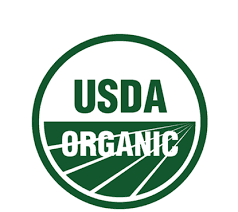One of the fastest growing sectors of the U.S. agricultural is organic foods. These products pass through a gauntlet of handlers; from farmers to processors and packagers, warehousing and transport, vendors, chefs and servers. All who come into contact with organic food along that chain must comply with some level of regulatory oversight in order to ensure the food arrives in a condition that is safe and predictable.
Choosing the right organic food warehouse and 3PL (third-party logistics) partner is an important piece of the puzzle. A few things to consider when choosing an organic food warehouse:
- Most organic foods cannot be stored with other products or substances that are not organic for fear of contamination.
- Suitable materials must be used for organic food storage and boxes clearly labelled noting their contents and origin traceability.
- Records of organic inventory must be kept separately from all other goods in the warehouse.
- Equipment that has been used for non-organic products must not be used for organics due to possible contamination.
Bridgeport Distribution, Inc. is certified by the USDA National Organic Program through inspections and records reviews to handle and warehouse your organic foods safely and appropriately.
